12 Potential Buttermilk Benefits, Nutrition, Recipes, And More
Experience the power and goodness of consuming this tangy drink on your health.
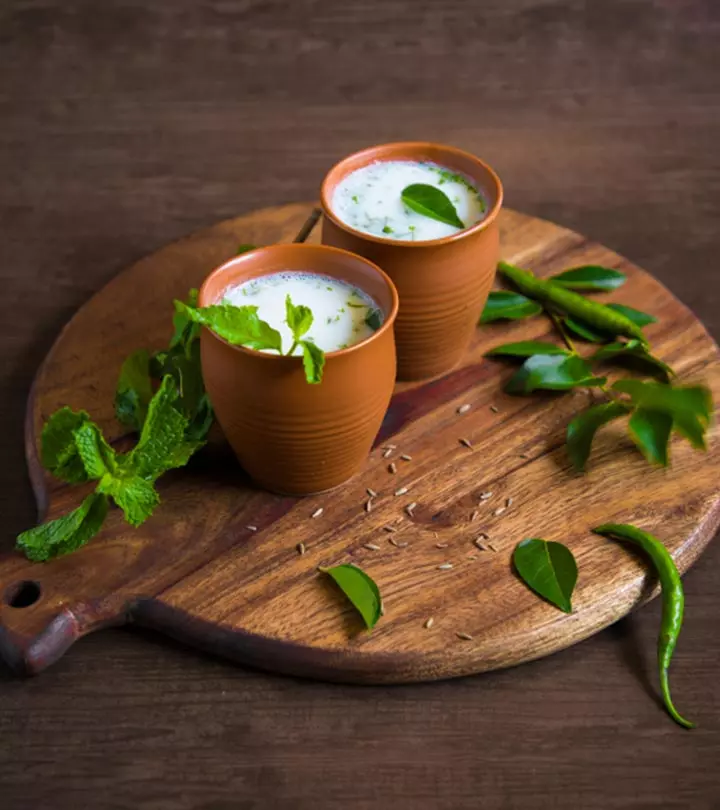
Image: Shutterstock
Buttermilk benefits extend far beyond its delicious taste. It quenches one’s thirst and provides relief from the heat. Its mild tangy taste calms down stomach irritability caused due to spicy foods. It also helps manage blood pressure, improves digestion, and helps combat dehydration. In addition, it exhibits an instant cooling effect and is used in many cuisines for a unique flavor. Learn more about the health benefits of buttermilk, its nutrition facts, and the variants it is available in. Continue reading.
 Know Your Ingredient: Buttermilk
Know Your Ingredient: ButtermilkWhat Is It?
A fermented dairy drink obtained after churning butter out of cream.
What Are Its Benefits?
It helps in reducing acidity, tackles dehydration, and supports digestion and bone health.
Who Can Consume It?
Anyone can consume it except people with a milk allergy, kidney problems, and lactose intolerance.
How Often?
You can consume 1 to 2 glasses of buttermilk daily.
Caution
Avoid drinking buttermilk at night if you have a cold, pollen allergy, or fever.
In This Article
What Is Buttermilk?
Buttermilk is a sour milk, which is a derivative of the butter mixing or fermentation process. But it doesn’t contain any butter. The traditional buttermilk is made from the liquid left behind after churning butter out of cultured cream. Buttermilk mostly consists of water, casein (milk protein), and a wide range of vitamins, minerals, and probiotics. It is also said to possess antimicrobial, antioxidant, and anticancer properties with many health benefits (1). The acidity of buttermilk is high due to the presence of lactic acid, which, in turn, helps prevent the growth of unwanted bacteria. You can either take it directly or add a mixture of cumin powder, pepper, ginger, green chilies, curry, and coriander leaves to enhance its taste and therapeutic benefits.
What are the benefits of buttermilk? Is buttermilk good for you? Find out in the next section.
Key Takeaways
- Buttermilk is a fermented dairy product with a delicious taste and unique flavor.
- Its instant cooling effect and antibacterial and antiviral properties can prevent several infections.
- The presence of probiotics and other essential nutrients in buttermilk offers many health benefits.
- It prevents dehydration, relieves acidity, and may improve digestive and immune health.
12 Impressive Benefits Of Buttermilk
1. Relieves Acidity
If you have an acidity problem, drinking buttermilk is the best natural option.
A glass of buttermilk helps neutralize the acids in the stomach by coating the stomach lining. It helps prevent heartburn and keeps the acids from moving up into the esophagus (2). The lactic acid in buttermilk normalizes the acidity in the stomach and gives a soothing effect. A glass of buttermilk topped with dried ginger, cumin, and black pepper further improves its properties. The carminativei The property of a substance to resolve flatulence issues by preventing gas formation in the GI tract and expelling the gas. (preventing gas formation) properties of these added condiments help expel gas from the stomach (2).

2. Has A Cooling Effect
Buttermilk has a whole-body cooling effect and it also lowers the sweat rate
(3). A glass of buttermilk with salt, cumin seeds, and mint is well suited to cool your body in the summers (4). Buttermilk is a refreshing drink and it quickly cools down your body (3). A glass of buttermilk can also provide relief to post-menopausal women who experience hot flashes (2).
3. Prevents Dehydration
Buttermilk is rich in electrolytes like sodium, potassium, calcium, and magnesium
(5). It naturally hydrates your body and prevents summer diseases, such as prickly heat and general illness (3). This summer drink contains around 90 percent of water and electrolytes like potassium. Hence, it is effective in maintaining water balance in the body, improving hydration levels, and preventing water loss.
4. May Reduce Blood Pressure

Buttermilk can significantly reduce blood pressure and help patients with high blood pressure and heart disease (6). Milk peptides and bioactive proteins in buttermilk help minimize blood pressure. Hypertension (high blood pressure) is the leading cause of cardiovascular disease. Daily consumption of buttermilk is known to decrease systolic blood pressure (6). Buttermilk may also reduce mean arterial blood pressure.
Buttermilk is rich in potassium that also helps reduce blood pressure (7). The milk fat globule membrane (MFGM) in buttermilk has antihypertensivei The property of a drug or agent to regulate high blood pressure to prevent stroke or other cardiovascular issues. properties (6).
5. May Promote Digestive Health
The lactic acid and healthy bacteria in buttermilk help promote digestion and improve your body’s metabolism (2). Buttermilk is the best natural option for treating irritable bowel syndrome (IBS). Its astringencyi The property of an ingredient to draw out water from the tissues, causing them to shrink and dry up secretions. and appetizing nature make it a natural remedy for constipation. Buttermilk can also help maintain regular bowel movements (8). It even may help treat lactose intolerance and reduce the risk of colon cancer (9), (10).
 Quick Tip
Quick Tip6. May Help Lower Cholesterol Levels
Daily consumption of buttermilk can help lower cholesterol and triglyceridei A naturally occurring or food-derived fat stored in the blood and is converted into energy by the body. levels. In one study, male albino rats that were fed buttermilk had shown a reduction in cholesterol levels (11). Consumption of buttermilk may also reduce serum cholesterol and triacylglycerol levels (12).
7. Promotes Bone Health
Buttermilk is the best natural source of calcium for lactose-intolerant individuals. Calcium is an important electrolyte because it supports the heart and muscles and helps promote bone health (13). Buttermilk provides nourishment for new bone development and reduces the risk of osteoporosis (2). One cup of buttermilk has 284 milligrams of calcium and only 2.6 grams of fat whereas a cup of whole milk has 7.9 grams of fat and a little less calcium at 276 mg (5), (14).
The calcium in buttermilk is an essential building block for the bones and the body’s skeletal system (15). It gets absorbed by bone tissue and helps maintain bone density. The nutrients in buttermilk, such as calcium and phosphorus, help strengthen bones and prevent degenerative bone diseases, including osteoporosis (16), (17), (18). Higher intake of phosphorus was also associated with higher calcium intake (19).
8. May Improve Oral Health
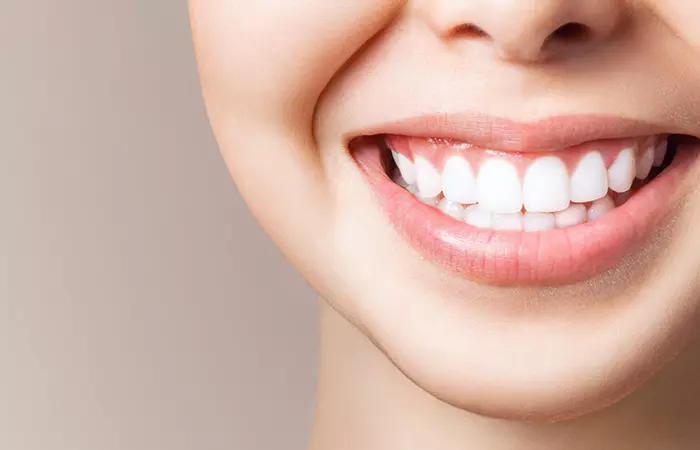
Buttermilk has anti-inflammatory properties and can lower inflammation in the oral skin cells that line your mouth (20). Fermented dairy products have been found to reduce periodontitisi A common but serious dental infection that damages gums and results in tooth loss, and is caused due to poor oral hygiene. (21), (22). Buttermilk may be helpful for people with oral inflammation caused due to different chemo or radiation therapies. However, more studies are required to further understand this benefit.
9. May Help With Detoxification
, Clinical Dietitian at the Memorial Regional Hospital, adds, “Buttermilk can be a part of a diet that helps a fatty liver. One of the best ways to reverse a fatty liver is weight loss. Buttermilk is naturally low in fat and calories, which can help you lose weight and, therefore, it is good for fatty liver. Additionally, the high amounts of protein can help you feel satiated throughout the day, leading to less calorie consumption and weight loss. Lastly, buttermilk contains certain B vitamins that help aid in digestion and liver function.”
Buttermilk contains riboflavin, which is essential for converting the consumed food to energy (3). Riboflavin also helps in the secretion of certain hormones and aids digestion (23). It also helps regulate your body’s amino acids, which make up proteins. This B vitamin even improves liver function and deficiency results in liver disorder (24). Regular intake of buttermilk may help detoxify your body. However, limited data is available to prove this claim.
10. Improves Immune Health
Daily intake of buttermilk can strengthen your immune system and protect against various infections. This drink is rich in lactic acid bacteria. This bacterium boosts the immune system and helps the body fight against different disease-causing pathogens (2). As a probiotic, buttermilk is active against vaginal and Candida infections.
11. May Enhance Skin Health
Feder says, “Buttermilk contains a lot of lactic acid. This compound has been shown to help tighten skin, open pores, and lighten dark spots. Additionally, consuming buttermilk will provide you with essential proteins, vitamins, and minerals that can support healthy, glowing skin.”
Buttermilk is rich in probiotic lactic acid and is one of the best peel-off masks you can use. It is an excellent skin cleanser and toner. It moisturizes and brightens our skin, thus delaying aging. It also gives your skin a natural glow and improves its elasticity. It is used for exfoliating, brightening, and softening skin. Lactic acid in buttermilk helps in skin exfoliation (25). It may help reduce signs of premature aging. It may help remove suntan, blemishes, and acne spots. However, limited data is available in this regard.
12. May Help Reduce Stress And Anxiety
Buttermilk plays a significant role in managing stress and anxiety. The phospholipids present in buttermilk may have protective effects against chronic psychological stress. Animal studies suggest that supplementing with phospholipid-rich buttermilk from an early age may protect against stress-induced changes and reduce anxiety. Moreover, consumption of buttermilk in adulthood may help decrease anxiety and stress. However, the best results are seen when you begin early in life (26). Incorporate buttermilk into any meal of the day. It is recommended that you consume it daily to reap its benefits.
The above-mentioned points show how buttermilk benefits your health. Let us find out more about its nutrition. Buttermilk is the best low-fat hydrating drink to consume. What other nutrients does it contain?
Nutrition Information
Buttermilk is replete with many nutrients and is a rich source of calcium. According to the United States Department of Agriculture (USDA) one cup of buttermilk provides the following nutrients (5):
- Energy: 98 kcal
- Protein: 8.11 g
- Fat: 2.62 g
- Carbohydrates: 11.7 g
- Calcium: 284 mg
- Phosphorus: 218 mg
- Sodium: 363 mg
- Magnesium: 27 mg
- Riboflavin: 0.377 mg
Buttermilk also contains vitamins D, B12, and C, and potassium.
As discussed, buttermilk is available in different types. Find out more about them in the following section.
What Are The Different Types Of Buttermilk?
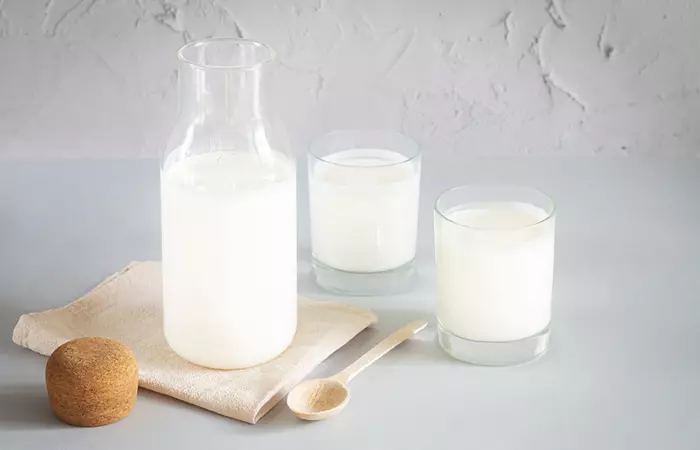
Buttermilk prepared from natural yogurt is of four types, and each has a specific function. Buttermilk made of full cream yogurt with added sugar is wholesome and calms the digestive tract. It is very similar to natural yogurt in its attributes. No-cream buttermilk calms bloating and is good for those with diabetes or those seeking to lose weight. Buttermilk mixed with 50% water improves digestion. No-fat buttermilk is naturally cooling and reduces tiredness.
You can prepare buttermilk easily at home. Scroll down to find the recipes.
How To Make Buttermilk At Home?
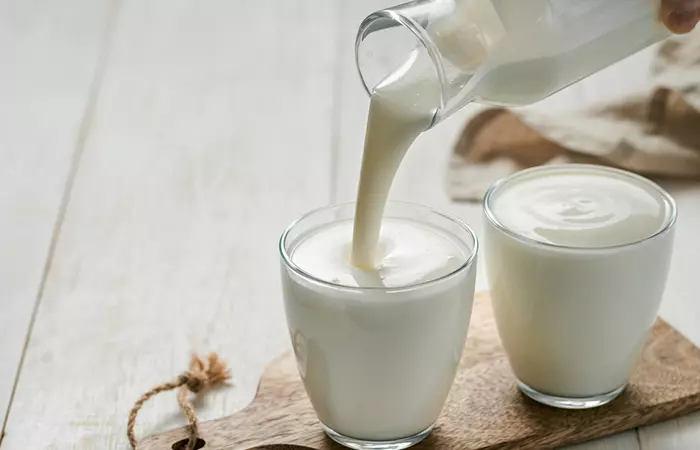
1. Regular Buttermilk
Ingredients
- ½ – ¾ cup of thick curd
- ½ a cup of water
- Salt, as required
Process
- Mix the thick curd with one-fourth cup of water.
- You can always water it down to prepare a thinner version.
- Add salt as required.
- Traditionally-made buttermilk is watery and naturally sour.
2. Buttermilk With Added Condiments
Ingredients
- ½ to 1 cup of thick curd
- 1 tablespoon of green chili
- 4 ice cubes
- 2 teaspoons of coriander leaves
- 3 cups of chilled water
- 1 tablespoon of ginger juice
- 2 sprigs of curry leaves
- Salt, as required
Process
- Whisk the curd well in a jar and add chilled water in intervals.
- Stir it well and add ginger juice to the jar.
- Again, stir it well to dilute the mixture.
- Once you have diluted the curd, you have to prepare the tempering for it. For the same, put a small pan or a saucepan over a low flame and add oil to it.
- Quickly add curry leaves and slit green chili.
- Once they crackle, turn off the flame and pour it over the diluted curd in the jar.
- Add the ice cubes to the prepared mixture and top with coriander leaves.
- Stir once again well and serve chilled.
 Quick Tip
Quick TipThis is all about how you prepare buttermilk easily at home. Let’s now find out alternatives to buttermilk in the next section.
Buttermilk Substitutes
If buttermilk is unavailable, you can quickly substitute using common kitchen ingredients. You can acidify the milk with vinegar, lemon juice, or cream of tartar to mimic buttermilk’s acidity. You may combine one tablespoon of vinegar or lemon juice with one cup of milk, then leave it for five to ten minutes. This mixture is a convenient substitute for recipes that call for buttermilk because it will thicken a bit and closely resemble the creamy texture and sour taste of buttermilk. Moreover, when thinned with water or milk, sour cream and plain yogurt serve as substitutes for buttermilk with similar tanginess. Unflavored kefir is a direct replacement, while powdered buttermilk can be reconstituted with water. Buttermilk’s low lactose content may make it tolerable for those with lactose intolerance.
But how long does buttermilk last? Scroll down to know.
How Long Does Buttermilk Last?
Once you open a buttermilk bottle, it can last up to two weeks in the refrigerator. It can even be frozen unopened or opened in an airtight container for up to three months. If you observe any smell or changes in its texture, you must avoid consumption. Buttermilk can last longer than most dairy products. As it ages, it can lose its buttery flavor and thickens. Just make sure that you store it in an airtight container.
Buttermilk has many health benefits that may help improve your overall wellness. But excessive intake of buttermilk is not recommended. How much of it can you drink per day?
How Much Buttermilk To Drink Per Day?
Anecdotal evidence suggests that excessive intake of buttermilk can lead to nausea and diarrhea. Hence, limit its intake to one big glass or two small glasses per day.
That said, can you take buttermilk at night?
Is It Good To Have Buttermilk At Night?

Yes. You can consume buttermilk at night. Replace curd with buttermilk during the night, as curd consumption may lead to mucus development.
Infographic: 5 Reasons To Include Buttermilk In Your Diet
Buttermilk is widely used to prepare pancakes, biscuits, quick breads, and muffins. It can also be used as a creamy base for soups and salad dressings. This fermented milk product is packed with nutrients and healthy bacteria and can help you stay healthy in many ways. Check out the infographic below to learn why you must consider including it in your diet.
Some thing wrong with infographic shortcode. please verify shortcode syntaxThe benefits of buttermilk are numerous. It is loaded with many health-promoting nutrients. When included as a part of your diet, it helps relieve acidity, lowers sweat rate, prevents dehydration, reduces blood pressure, and promotes digestive, bone, oral, immune, and skin health. It also helps in lowering cholesterol levels and aids detoxification. You can prepare buttermilk with condiments at home with simple ingredients. However, consuming it in excess amounts may trigger nausea and diarrhea. Hence, practice caution and only drink it in moderate amounts daily.
Frequently Asked Questions
Can buttermilk be used in baking?
Yes, buttermilk is excellent for baking. Its little acidity helps in the activation of baking soda, giving baked goods a fluffier, lighter texture. Buttermilk is ideal for cakes, muffins, pancakes, and biscuits because it enhances moisture and provides a light tanginess.
Is it good to drink buttermilk every day?
According to Feder, “Buttermilk can be a part of your everyday diet. It is rich in protein, low in fat, low in calories, and contains essential vitamins and minerals. It is also a good source of probiotics and is easier to digest compared to normal milk. There are approximately 98 calories per cup of buttermilk, which is also much lower than normal milk.”
Does buttermilk reduce belly fat?
Buttermilk can help reduce belly fat since it is low in calories, high in protein, high in vitamins and minerals, and can help make you feel full. Feder adds, “It is important to note that drinking buttermilk alone will not reduce belly fat. However, it can help you consume fewer calories throughout the day and keep you full, which can help you reduce belly fat over time.”
Which is the best time to drink buttermilk?
A glass of buttermilk on an empty stomach is suitable for people with digestive problems. However, having it after meals works best for most.
Who should avoid buttermilk?
People with kidney problems should avoid drinking buttermilk due to its high sodium content. Also, people who are sensitive to salt should avoid having it.
What are the side effects of buttermilk?
Buttermilk may cause allergic reactions and digestive problems in some people. In addition, its high sodium content may be problematic to some individuals.
Is buttermilk healthier than milk?
These dairy products can be healthy when consumed in moderation. Both have nearly equal amounts of minerals. However, the benefits of milk are not the same as the buttermilk. So, you can not substitute milk with buttermilk due to their individual benefit. It is recommended that you read about these dairy products and then make your choice based on your preference and health needs.
Illustration: What Are The Benefits Of Buttermilk?
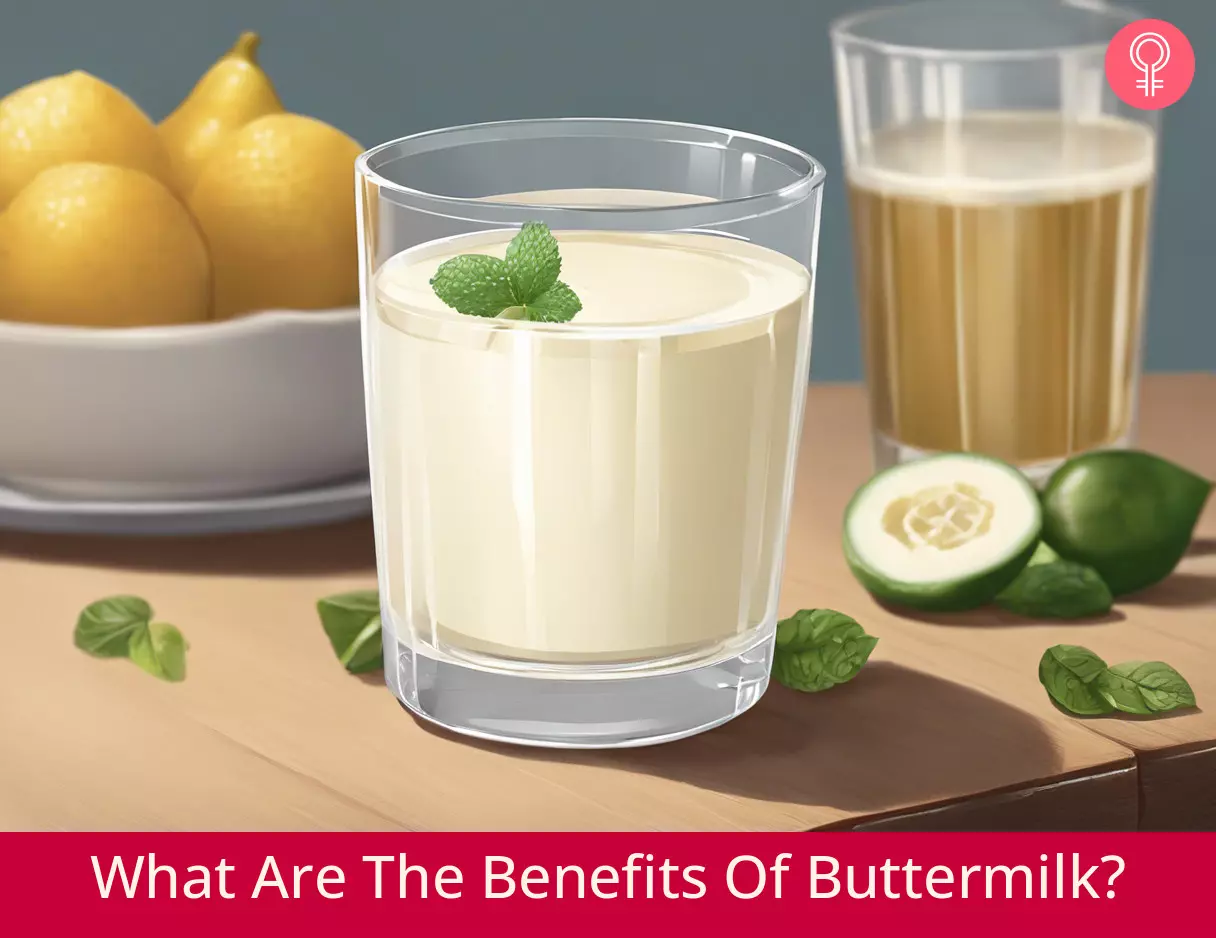
Image: Stable Diffusion/StyleCraze Design Team
Discover the top 10 potential benefits of buttermilk! From aiding digestion to promoting healthy skin, learn how this delicious drink can benefit your health. Watch the video below to know more.
References
Articles on StyleCraze are backed by verified information from peer-reviewed and academic research papers, reputed organizations, research institutions, and medical associations to ensure accuracy and relevance. Read our editorial policy to learn more.
- Technological and Biological Properties of Buttermilk: A Minireview
https://www.researchgate.net/publication/334047484_Technological_and_Biological_Properties_of_Buttermilk_A_Minireview - Effects of Buttermilk on Health
https://ijsrm.net/index.php/ijsrm/article/view/892/775 - Exploring how a traditional diluted yoghurt drink may mitigate heat strain during medium-intensity intermittent work: a multidisciplinary study of occupational heat strain
https://www.ncbi.nlm.nih.gov/pmc/articles/PMC5889929/ - Indigenous herbal coolants for combating heat stress in the hot Indian Arid Zone
https://www.researchgate.net/publication/266048896_Indigenous_herbal_coolants_for_combating_heat_stress_in_the_hot_Indian_Arid_Zone - Milk, buttermilk, fluid, cultured, low fat
https://fdc.nal.usda.gov/fdc-app.html#/food-details/170874/nutrients - Effect of buttermilk consumption on blood pressure in moderately hypercholesterolemic men and women
https://www.researchgate.net/publication/258425691_Effect_of_buttermilk_consumption_on_blood_pressure_in_moderately_hypercholesterolemic_men_and_women - Blood Pressure and Serum Potassium Levels in Hypertensive Patients Receiving or Not Receiving Antihypertensive Treatment
https://www.researchgate.net/publication/5790708_Blood_Pressure_and_Serum_Potassium_Levels_in_Hypertensive_Patients_Receiving_or_Not_Receiving_Antihypertensive_Treatment - AYURVEDIC TREATMENT FOR IBS (IRRITABLE BOWEL SYNDROME)
https://www.researchgate.net/publication/277804839_AYURVEDIC_TREATMENT_FOR_IBS_IRRITABLE_BOWEL_SYNDROME - Effect of fermentation on lactose glucose and galactose content in milk and suitability of fermented milk products for lactose intolerant individuals
https://pubmed.ncbi.nlm.nih.gov/7076958/ - Anticancer Activity of Buttermilk Against SW480 Colon Cancer Cells is Associated with Caspase-Independent Cell Death and Attenuation of Wnt Akt and ERK Signaling
https://www.researchgate.net/publication/305745174_Anticancer_Activity_of_Buttermilk_Against_SW480_Colon_Cancer_Cells_is_Associated_with_Caspase-Independent_Cell_Death_and_Attenuation_of_Wnt_Akt_and_ERK_Signaling - In vivo anti-hypercholesterolemic effect of buttermilk milk fat globule membrane and Enterococcus faecium FFNL-12
https://www.foodandnutritionjournal.org/volume7number2/in-vivo-anti-hypercholesterolemic-effect-of-buttermilk-milk-fat-globule-membrane-and-enterococcus-faecium-ffnl-12/ - Impact of buttermilk consumption on plasma lipids and surrogate markers of cholesterol homeostasis in men and women
https://pubmed.ncbi.nlm.nih.gov/23786821/ - Calcium and its Role in Human Body
https://www.researchgate.net/publication/274708965_Calcium_and_its_Role_in_Human_Body - Milk, whole, 3.25% milkfat, with added vitamin D
https://fdc.nal.usda.gov/fdc-app.html#/food-details/746782/nutrients - Overview of Calcium
https://www.ncbi.nlm.nih.gov/books/NBK56060/ - Essential Nutrients for Bone Health and a Review of their Availability in the Average North American Diet
https://www.ncbi.nlm.nih.gov/pmc/articles/PMC3330619/ - Phosphorus nutrition and the treatment of osteoporosis
https://pubmed.ncbi.nlm.nih.gov/14708952/ - Dairy Foods: Current Evidence of their Effects on Bone Cardiometabolic Cognitive and Digestive Health
https://onlinelibrary.wiley.com/doi/full/10.1111/1541-4337.12183 - Association between phosphorus intake and bone health in the NHANES population
https://www.ncbi.nlm.nih.gov/pmc/articles/PMC4389665/ - The anti-inflammatory effect of milk and dairy products on periodontal cells: an in vitro approach
https://pubmed.ncbi.nlm.nih.gov/30238412/ - Increased intake of dairy products is related to lower periodontitis prevalence
https://pubmed.ncbi.nlm.nih.gov/16460256/ - Intake of Dairy Products in Relation to Periodontitis in Older Danish Adults
https://www.ncbi.nlm.nih.gov/pmc/articles/PMC3475232/ - Riboflavin (Vitamin B2)
https://www.researchgate.net/publication/286025873_Riboflavin_Vitamin_B2 - Riboflavin Deficiency
https://www.ncbi.nlm.nih.gov/books/NBK470460/ - Dual Effects of Alpha-Hydroxy Acids on the Skin
https://www.researchgate.net/publication/324430887_Dual_Effects_of_Alpha-Hydroxy_Acids_on_the_Skin - Dietary Milk Phospholipids Attenuate Chronic Stress-Induced Changes in Behavior and Endocrine Responses across the Lifespan
https://www.researchgate.net/publication/324430887_Dual_Effects_of_Alpha-Hydroxy_Acids_on_the_Skin
Read full bio of Dr Archana Batra
- Jesse Feder, RDN/LDN, is a Clinical Dietitian at the Memorial Regional Hospital. He is also a certified by the American College of Sports Medicine as a personal trainer (ACSM-CPT) and the National Strength and Conditioning Association as a Certified Strength and Conditioning Specialist (NSCA-CSCS).
 Jesse Feder, RDN/LDN, is a Clinical Dietitian at the Memorial Regional Hospital. He is also a certified by the American College of Sports Medicine as a personal trainer (ACSM-CPT) and the National Strength and Conditioning Association as a Certified Strength and Conditioning Specialist (NSCA-CSCS).
Jesse Feder, RDN/LDN, is a Clinical Dietitian at the Memorial Regional Hospital. He is also a certified by the American College of Sports Medicine as a personal trainer (ACSM-CPT) and the National Strength and Conditioning Association as a Certified Strength and Conditioning Specialist (NSCA-CSCS).
Read full bio of Sindhu Koganti
Read full bio of Ravi Teja Tadimalla
Read full bio of Himanshi Mahajan







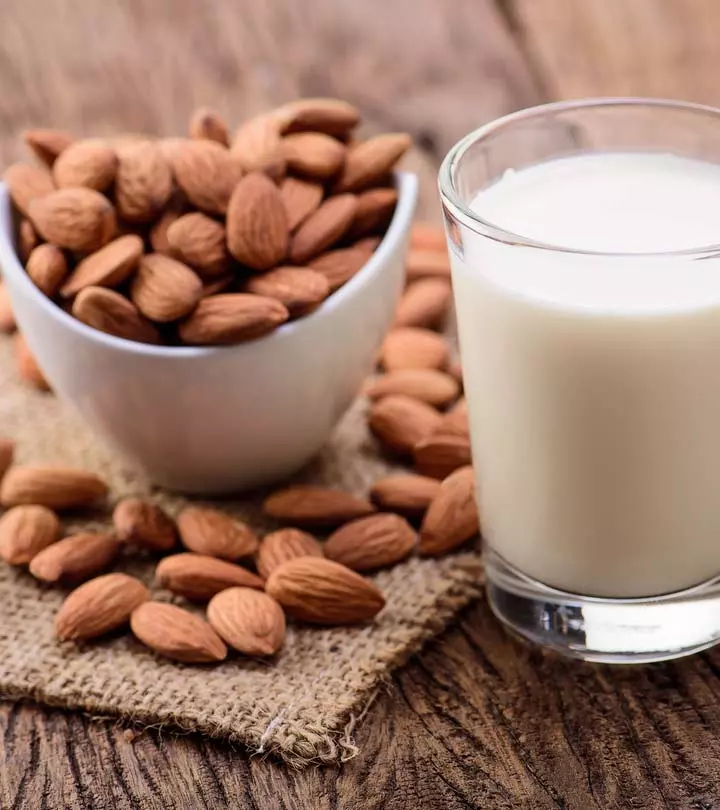


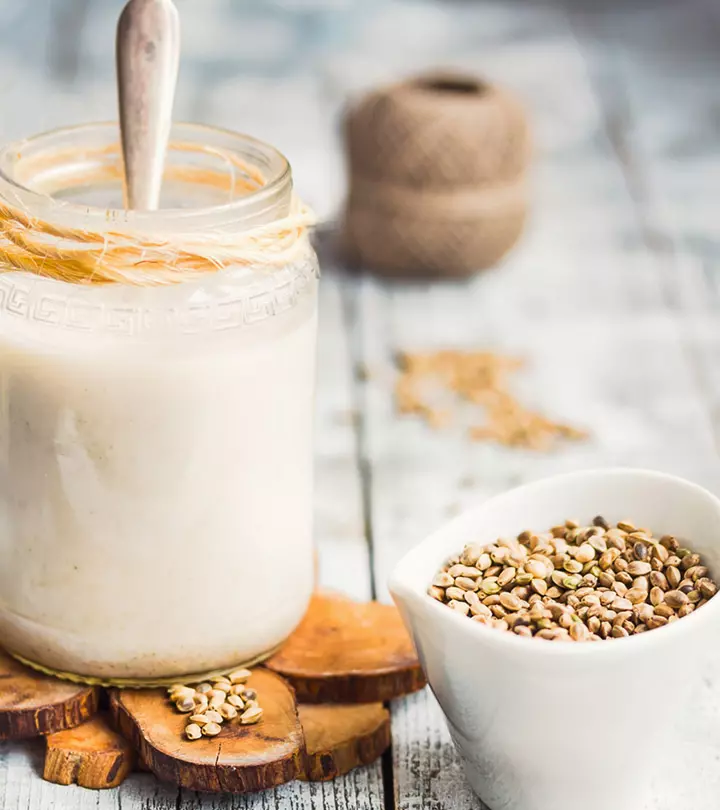
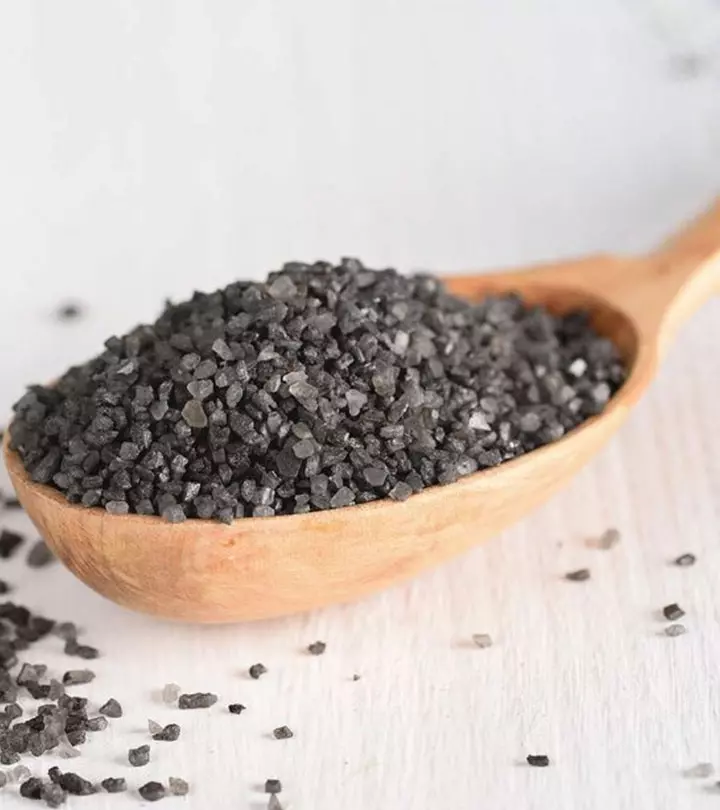
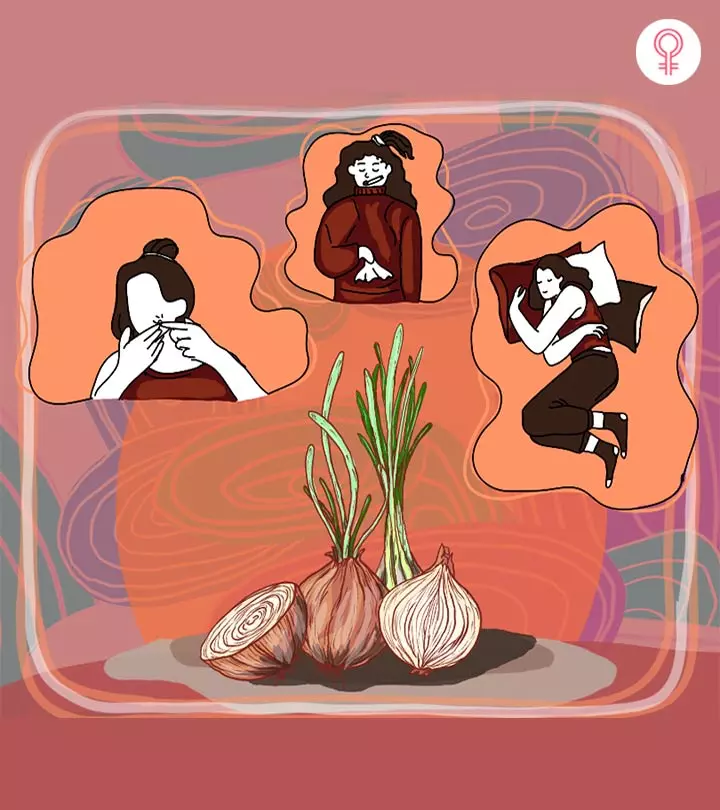

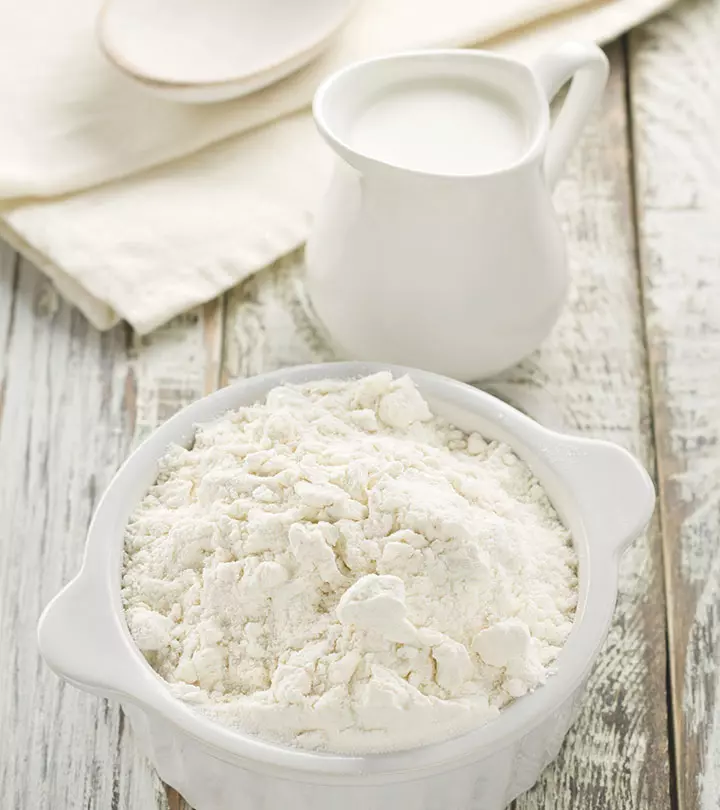
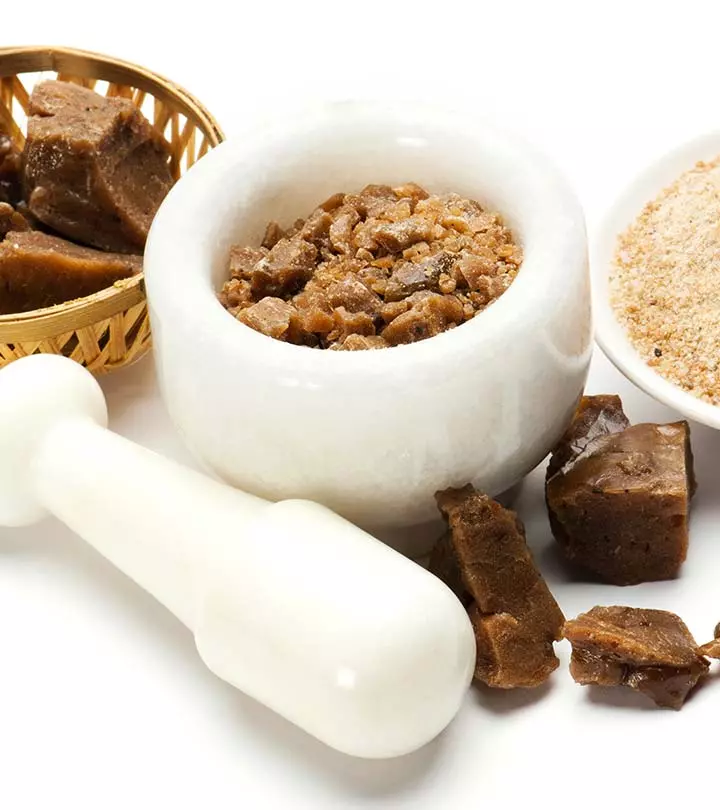

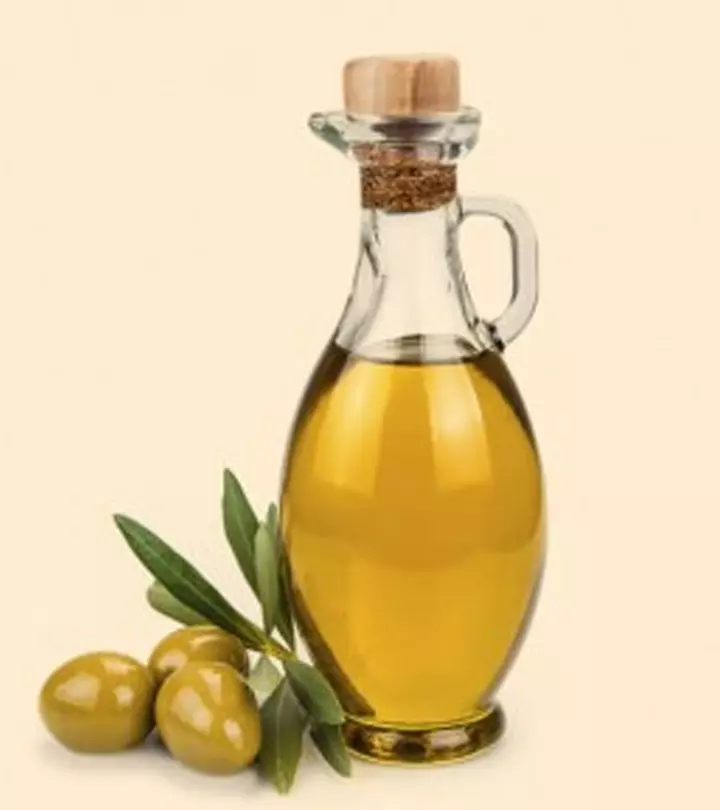
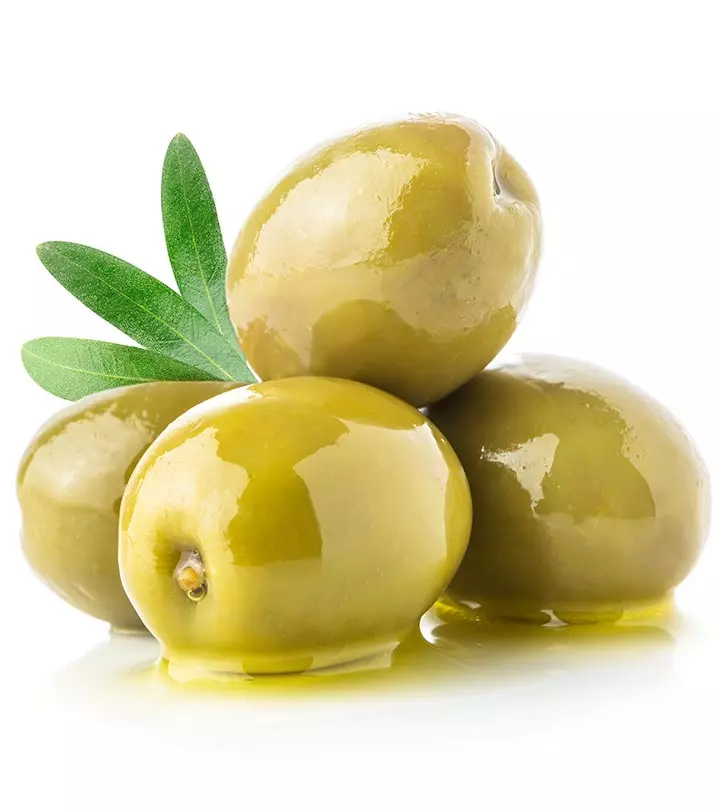

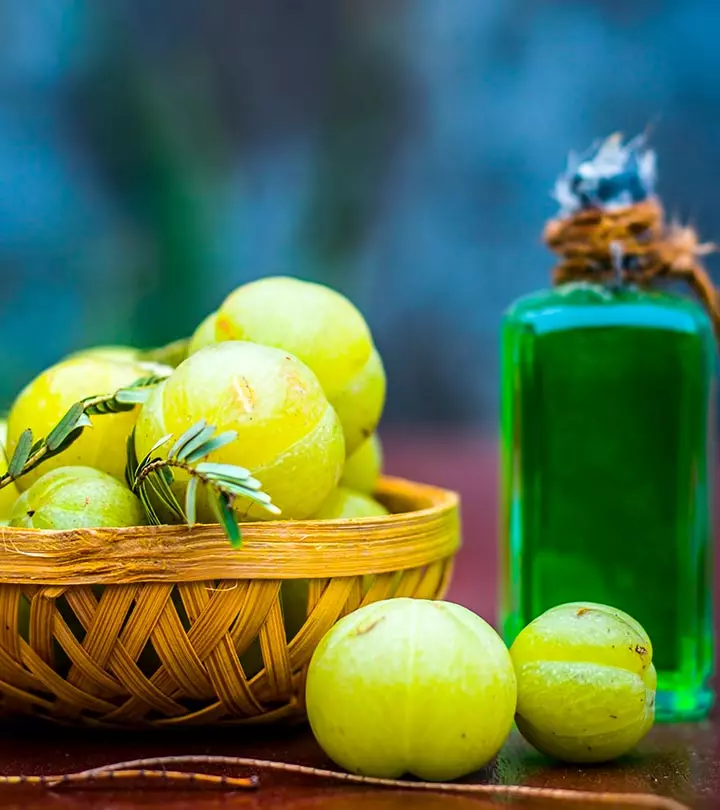


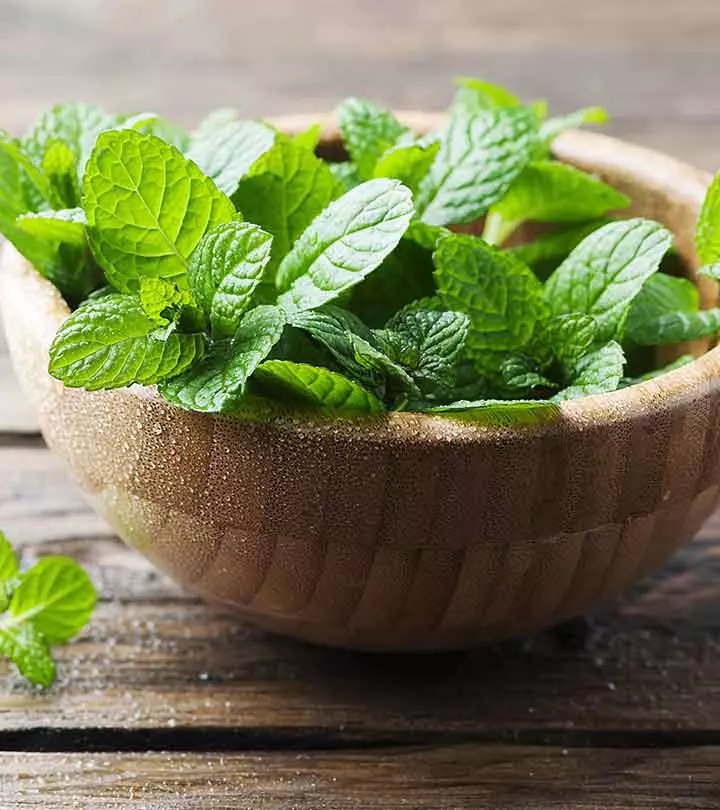

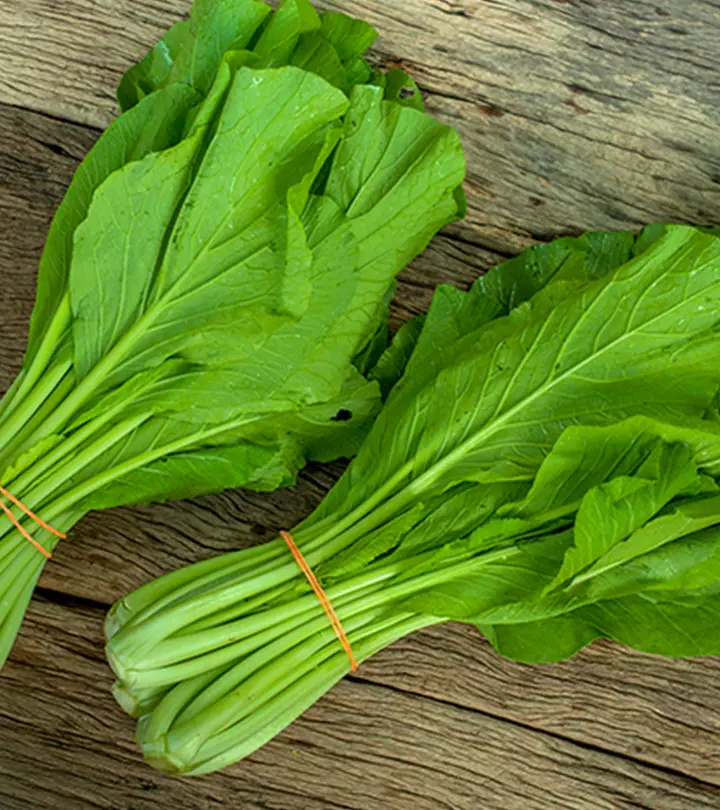
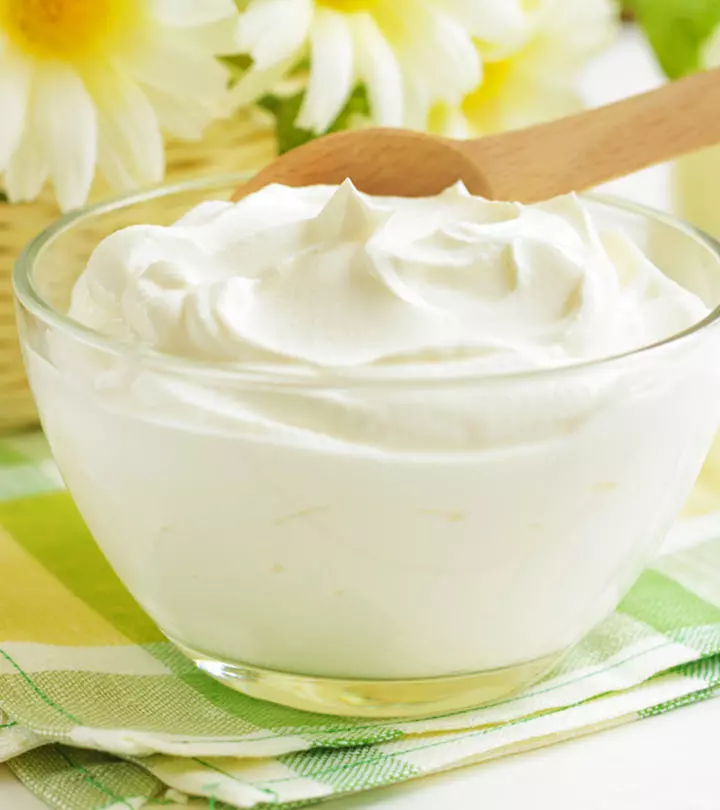

Community Experiences
Join the conversation and become a part of our empowering community! Share your stories, experiences, and insights to connect with other beauty, lifestyle, and health enthusiasts.